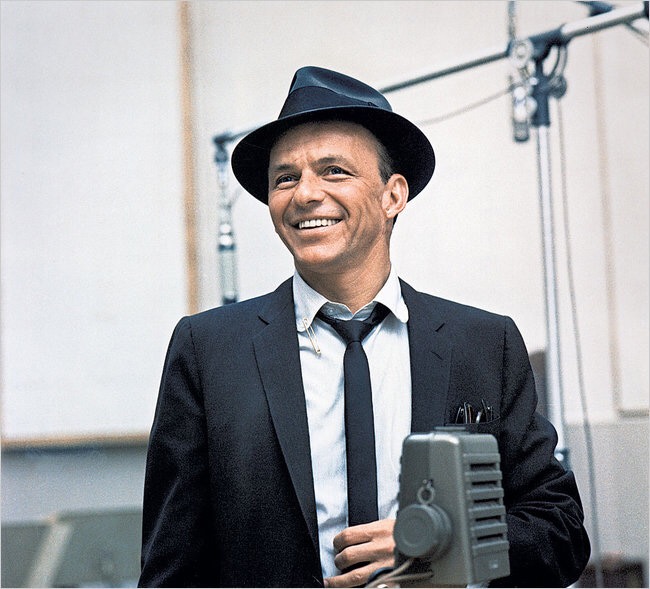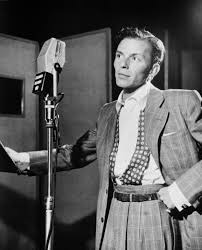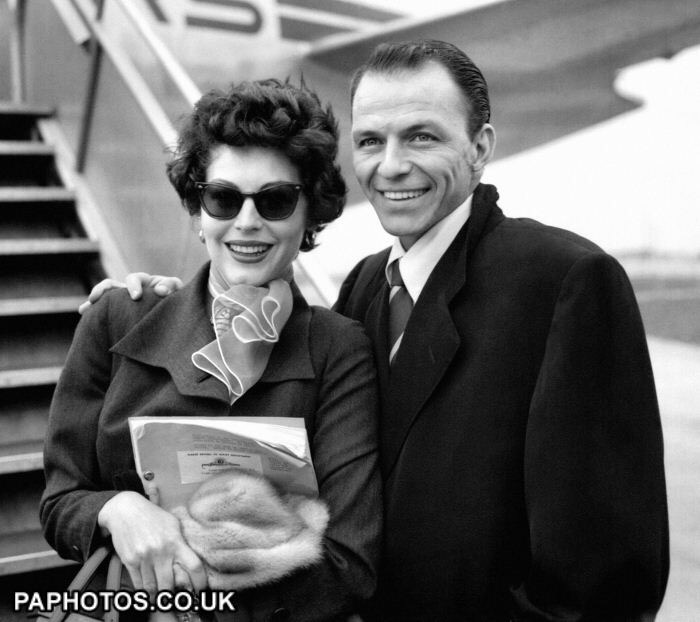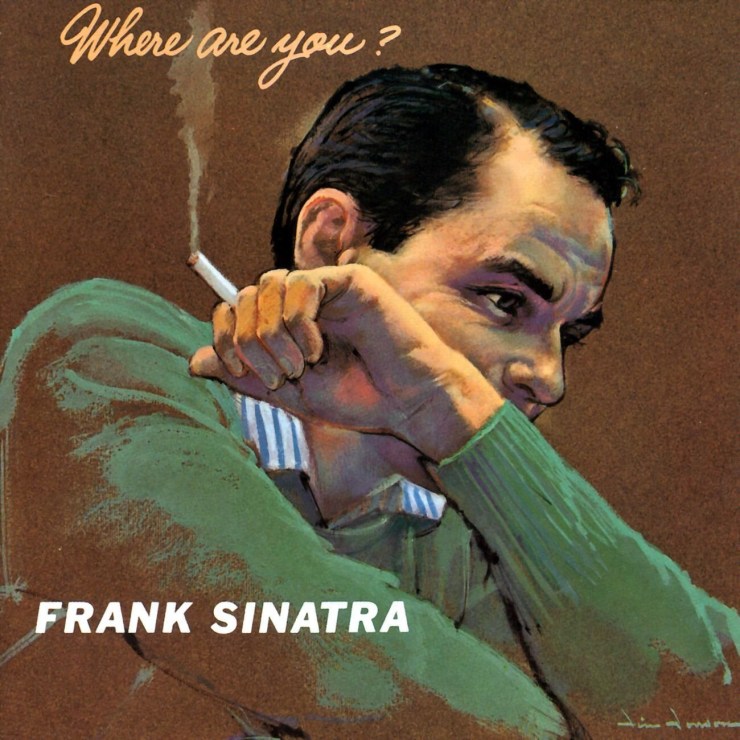After the war, the big band swing that dominated the ‘thirties had fallen out of fashion, a fact not helped by a musicians’ strike. In November 1939 the 24 year old Frank Sinatra got the gig as lead singer in Tommy Dorsey’s band. It was to make him a star. By 1942 he was a solo star, appealIng to what at the time were called bobby soxers, teenage girls. Sinatramania was pretty much unprecedented, representing a new market for popular music based primarily on radio, and the gramophone.
By the late ‘forties he was perhaps as much known for his movies: On the Town came out in 1949. His singing career, meanwhile, had all but collapsed. When his marriage had ended, thanks to his very public affair with the movie star Ava Gardener, he lost his movie and recording contracts, and even his voice at one point. Had it not been for his role in From Here to Eternity, which Ava Gardener reputedly got him, he may have never have recovered.
The popular music of the early ‘fifties was dominated by crooners, mostly recording romantic ballads, such as the great Nat King Cole. When Sinatra signed for Capitol in 1953, he did something new in popular music: he created the album. The technology was ripe, in the form of the long playing disc, a 12 inch diameter disc made of vinyl, which could be cut in such a way as to allow around twenty minutes of music on each side, and to allow a sound quality the old 78 rpm disc could never come close to. It had, of course, been designed with classical music in mind, and its relevance to jazz, especially as jazz evolved to allow longer pieces.
For popular music, especially the crooners, LPs were an afterthought, usually a selection of hastily chosen and arranged songs; after a minimal rehearsal, in which the singer often heard the songs for something close to the first time.
In 1953, Capitol offered Sinatra a recording contract, but a very poor one: for one year only, with no advance and with the artist himself paying his own studio costs. Sinatra, in many ways desperate, took the chance. Ironically, the terms of the contract gave Sinatra a degree of freedom. He also made an inspired choice: he hired Nat King Cole’s up and coming arranger Nelson Riddle. Early success gave Sinatra a platform.
He would make more than twenty hit albums for Capitol, many of which still stand the test of time. Upbeat, big band style collections like Songs for Swingin’ Lovers! from 1956 still sound fresh, and still sell.
What was he doing that was different? The first thing was that these were albums, centred around a concept, songs carefully chosen to complement each other, even to tell a kind of story. Then, there were the arrangements. Most singers simply left it the arranger. Sinatra sung the song, and talked long with his arrangers: he had his sound in mind, he knew what he wanted. Then, there was his voice. It was deeper, more conversational.
That comes out best in what, for me, are the greatest of those albums: the torch songs. The first of those albums, In the Wee Small Hours of the Morning, has a good claim to being the first great pop album.
His marriage break up, and his tempestuous affair and marriage with Ava Gardner changed the way he sang. There was, in these albums, a real emotional depth. He somehow lived inside the song, it seemed to come from the heart, from real experience. Nelson Riddle said it was his relationship with Gardener that ‘taught him how to sing a torch song. That’s how he learned. She was the greatest love of his life, and he lost her.’
When Sinatra left Capitol, he left his best work behind. Arguably, he made one last great album, the 1965 release The September of My Years, with his other great arranger, Gordon Jenkins. This marvellous footage of the recording of its signature song It Was a Very Good Year, shows just how much he loved his art, and just how in control he was. It also a wonderful sight of a great artist at work.





Reblogged this on RGS History and commented:
As Sinatra was born 100 years ago today, I thought I’d post my take on the great man again in his golden years
LikeLike